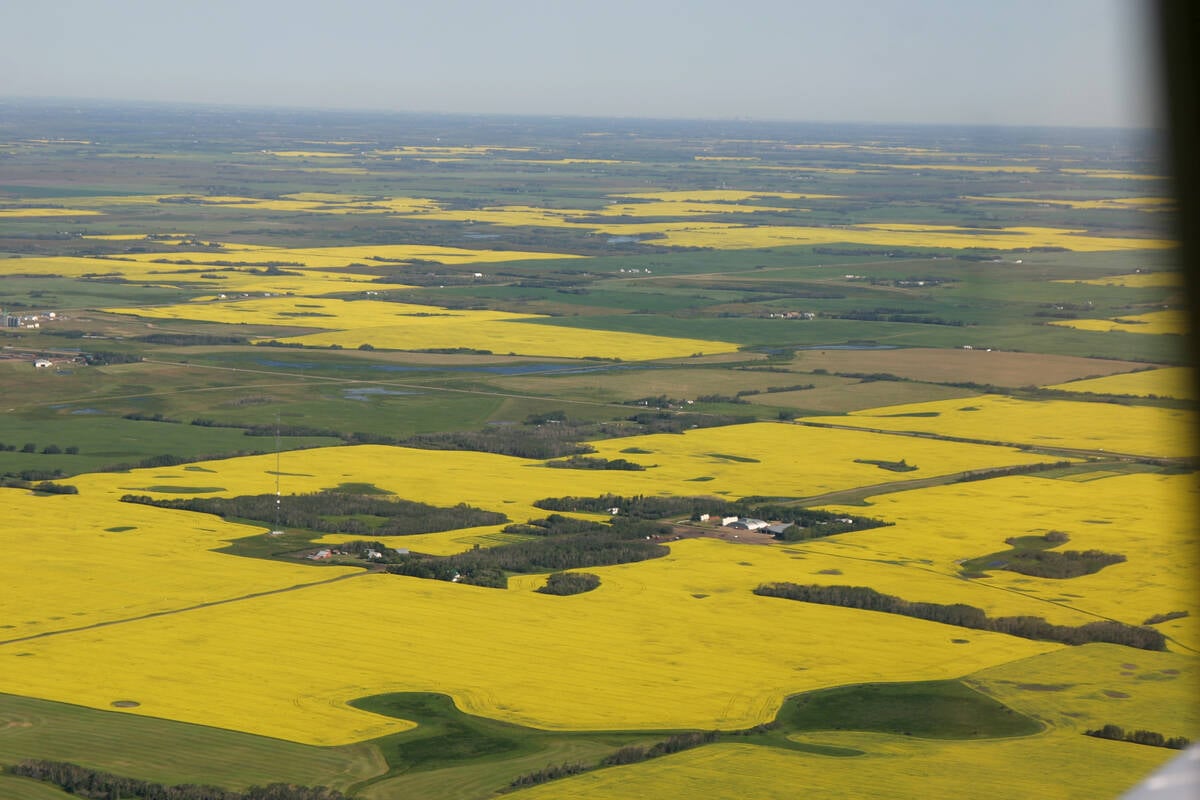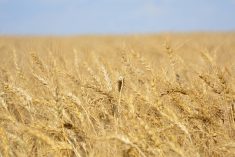The Canadian Wheat Board is scrapping plans to establish an organic wheat pool.
“There were a lot of issues around running a pool in the organic sector,” said CWB organic marketing manager Donna Youngdahl.
Instead, farmers will be given three options for marketing their wheat, durum and barley in the 2007-08 crop year. In addition to the controversial buyback program, growers will be able to participate in a CWB cash buying or an organic fixed spread contract program.
The buyback proved to be unpopular. It allowed farmers to deliver to an organic elevator and receive the wheat board’s conventional initial price as well as a privately negotiated premium, followed later by the board’s adjustment, interim and final payments.
Read Also

Increasing farmland prices blamed on investors
a major tax and financial services firm says investors are driving up the value of farmland, preventing young farmers from entering the business. Robert Andjelic said that is bullshit.
However, farmers didn’t like waiting to be paid for sales they made on their own and were occasionally blindsided by an invoice from the board in a year when wheat markets plummeted.
CWB spokesperson Maureen Fitzhenry said the new programs should address many of the concerns raised by organic growers during spring consultations.
The organic fixed spread contract allows growers to market their own grain by making an up-front payment to the board ranging from $3 to $10 per tonne, depending on the destination. Rates into the United States, the European Union and Japan will be confirmed before the Aug. 1 start of the new crop year and will remain in effect the entire year.
“That’s what we heard over and over again when we went out on those consultations, that they wanted certainty, they wanted a lower cost and they wanted some options,” Fitzhenry said.
Alternatively, farmers who want the board to market their crops can receive a cash price for their grain through the cash-buying program. During the first year of the program there will be opportunities to deliver crops but it won’t be year-round.
The producer direct sale or buyback program will also be available in 2007-08.
All of the programs will be enhanced the following year.
The board said the flat rate it is collecting through the fixed price contract represents the benefits organic farmers receive from the CWB through branding, variety development and advocacy on issues such as transportation, trade and biotechnology.
However, some growers remain frustrated that they have to pay the CWB any money at all, considering they are marketing their own grain without direct help from the board.
Wally Hamm, who farms near Saskatoon, can’t fathom why he is paying the board $40 per acre for the privilege of marketing his own product.
“My son and I don’t grow wheat for that simple reason,” he said.
Hamm, who is a partner in OCPP/Pro-Cert Canada Inc., one of the country’s largest certification bodies, is also perplexed why the wheat board chose to be certified as an organic trader by an American firm.
“It would seem to me that it would behoove them to work under the voluntary system that is in place in Canada right now, to be certified to the Canadian organic standard by an agency that is accredited by the Standards Council of Canada,” he said.
Hamm estimated the board is paying up to $10,000 per year to the U.S. certifier.
Fitzhenry said Quality Assurance International (QAI) provides service to all the board’s target markets and is used extensively by other grain companies.
“This is a tried and true and credible organization, which is not to say the others aren’t,” she said.
“We felt at the time that QAI could best suit our needs.”
















